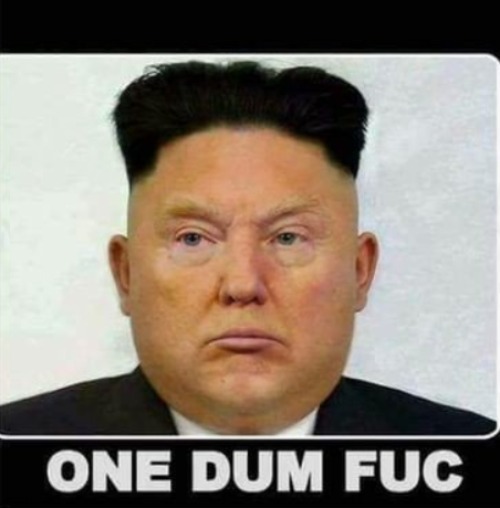A Chance to Write History: WWIII [Ongoing]
Moderator: Tournament Directors
Re: A Chance to Write History: WWIII [Ongoing]
I'll play, Duk, wherever you need me.
-

 macbone
macbone
- Posts: 6217
- Joined: Wed Jun 03, 2009 7:12 pm
- Location: Running from a cliff racer



























Re: A Chance to Write History: WWIII [Ongoing]
bahrain wrote:im in
DaveH wrote:In please Duke - any side
macbone wrote:I'll play, Duk, wherever you need me.
Excellent. Thank you all!
“Life is a shipwreck, but we must not forget to sing in the lifeboats.”
― Voltaire
― Voltaire
-

 Dukasaur
Dukasaur
- Community Coordinator

- Posts: 27831
- Joined: Sat Nov 20, 2010 4:49 pm
- Location: Beautiful Niagara





























 3
3




 2
2


Re: A Chance to Write History: WWIII [Ongoing]
count me in 
-
 Nath77440
Nath77440
- Posts: 248
- Joined: Sun Aug 01, 2010 9:04 am




















Re: A Chance to Write History: WWIII [Ongoing]
ok i'll play or be a reserve Loose Canon
-
 Loose Canon
Loose Canon
- Posts: 352
- Joined: Sat Jan 08, 2011 9:11 am




























 2
2
 2
2 3
3
-

 Silly Knig-it
Silly Knig-it
- SoC Training Adviser
- Posts: 3005
- Joined: Sat May 28, 2011 12:21 am
- Location: Everett, WA






























Re: A Chance to Write History: WWIII [Ongoing]
You can count me in! OleCowboyHippy
-

 OleCowboyHippy
OleCowboyHippy
- Posts: 82
- Joined: Sun Jul 27, 2008 7:15 pm
- Location: The Republic of Texas...Last Part of Free America



















Re: A Chance to Write History: WWIII [Ongoing]
Hi Duk
If you still need reserves, sign me up. I didn't read the whole thing but I am willing to help you out, where you need me.
aalii
If you still need reserves, sign me up. I didn't read the whole thing but I am willing to help you out, where you need me.
aalii
__xiGames_ _Member__
_Member__

"7 yrs of games & friends killing friends."
 _Member__
_Member__
"7 yrs of games & friends killing friends."
-

 aalii
aalii
- Posts: 512
- Joined: Fri Oct 12, 2007 7:56 am
- Location: Lehigh Valley,PA


























Re: A Chance to Write History: WWIII [Ongoing]
as you kindly asked
sign me in
sign me in
De gueules à la tour d'argent ouverte, crénelée de trois pièces, sommée d'un donjon ajouré, crénelé de deux pièces
Gules an open tower silver, crenellated three parts, topped by a apertured turret, crenellated two parts
Gules an open tower silver, crenellated three parts, topped by a apertured turret, crenellated two parts
-

 pamoa
pamoa
- Posts: 1242
- Joined: Sat Sep 01, 2007 3:18 am
- Location: Confederatio Helvetica























Re: A Chance to Write History: WWIII [Ongoing]
At gunpoint thehippo is forced onto the battlefield as a reserve!!
-

 thehippo8
thehippo8
- Posts: 1025
- Joined: Fri Feb 19, 2010 5:32 pm




















Re: A Chance to Write History: WWIII [Ongoing]
Nath77440 wrote:count me in
Loose Canon wrote:ok i'll play or be a reserve Loose Canon
Silly Knig-it wrote:okay I will be a reserve
OleCowboyHippy wrote:You can count me in! OleCowboyHippy
You four, plus the three above, make the seven that I needed. I guess my spamming efforts this morning were more successful than expected, so the following will go on the reserve list and not be used immediately:
aalii wrote:Hi Duk
If you still need reserves, sign me up. I didn't read the whole thing but I am willing to help you out, where you need me.
aalii
pamoa wrote:as you kindly asked
sign me in
thehippo8 wrote:At gunpoint thehippo is forced onto the battlefield as a reserve!!
Thank you all for joining!
“Life is a shipwreck, but we must not forget to sing in the lifeboats.”
― Voltaire
― Voltaire
-

 Dukasaur
Dukasaur
- Community Coordinator

- Posts: 27831
- Joined: Sat Nov 20, 2010 4:49 pm
- Location: Beautiful Niagara





























 3
3




 2
2


Re: A Chance to Write History: WWIII [Ongoing]
Randomized the order of the first seven reserves to avoid bias:
After this will be inserted as needed.
There were 7 items in your list. Here they are in random order:
Silly Knig-it
Nath77440
OleCowboyHippy
Loose canon
bahrain
DaveH
macbone
Timestamp: 2013-05-06 19:06:38 UTC
After this will be inserted as needed.
“Life is a shipwreck, but we must not forget to sing in the lifeboats.”
― Voltaire
― Voltaire
-

 Dukasaur
Dukasaur
- Community Coordinator

- Posts: 27831
- Joined: Sat Nov 20, 2010 4:49 pm
- Location: Beautiful Niagara





























 3
3




 2
2


Re: A Chance to Write History: WWIII [Ongoing]
Missing Battle 7 games have been created and invitations sent out!
Once again, thank you to all our reserves for helping us out.
Since we're back underway, it's time to claim this as my own. This is my 53rd!
Once again, thank you to all our reserves for helping us out.
Since we're back underway, it's time to claim this as my own. This is my 53rd!
“Life is a shipwreck, but we must not forget to sing in the lifeboats.”
― Voltaire
― Voltaire
-

 Dukasaur
Dukasaur
- Community Coordinator

- Posts: 27831
- Joined: Sat Nov 20, 2010 4:49 pm
- Location: Beautiful Niagara





























 3
3




 2
2


-

 MGSteve
MGSteve
- Posts: 1147
- Joined: Sat Jul 24, 2010 8:17 pm
- Location: Ed County in the Land of Fruits and Nuts





























Re: A Chance to Write History: WWIII [Ongoing]
If you need me I'm in 
-

 Odeuminus
Odeuminus
- Posts: 72
- Joined: Sat May 02, 2009 11:11 pm

























Re: A Chance to Write History: WWIII [Ongoing]
If still needed...I'm in
Really just angling for an invite to the orgy
Really just angling for an invite to the orgy
-
 russde
russde
- Posts: 274
- Joined: Tue Dec 22, 2009 11:56 pm


















Re: A Chance to Write History: WWIII [Ongoing]
MGSteve wrote:I willing if you need me.
Odeuminus wrote:If you need me I'm in
russde wrote:If still needed...I'm in
Really just angling for an invite to the orgy
Thank you to all three of you. I have enough reserves for now, but it's good to have extras!
“Life is a shipwreck, but we must not forget to sing in the lifeboats.”
― Voltaire
― Voltaire
-

 Dukasaur
Dukasaur
- Community Coordinator

- Posts: 27831
- Joined: Sat Nov 20, 2010 4:49 pm
- Location: Beautiful Niagara





























 3
3




 2
2


Re: A Chance to Write History: WWIII [Ongoing]
a bit lost war7, front3, had 2 wins and one lost so far is that right. Saw my name once but can't find it anymore. All is see is TBA 
-
 Nath77440
Nath77440
- Posts: 248
- Joined: Sun Aug 01, 2010 9:04 am




















Re: A Chance to Write History: WWIII [Ongoing]
Nath77440 wrote:a bit lost war7, front3, had 2 wins and one lost so far is that right. Saw my name once but can't find it anymore. All is see is TBA
The link where I am keeping scores is here:http://www.conquerclub.com/forum/viewtopic.php?p=4160902#p4160902
Unfortunately this is one of the drawbacks of rescuing a tournament that someone else began: the scoreboards tend to be not in the place where the original organiser had them, because the rescuer has no power to edit the original organisers files or posts.
You are listed in Front 3 on my new scoreboard. (However, it has not been updated to reflect the new scores yet.)
“Life is a shipwreck, but we must not forget to sing in the lifeboats.”
― Voltaire
― Voltaire
-

 Dukasaur
Dukasaur
- Community Coordinator

- Posts: 27831
- Joined: Sat Nov 20, 2010 4:49 pm
- Location: Beautiful Niagara





























 3
3




 2
2


Re: A Chance to Write History: WWIII [Ongoing]
Won 3 and lost 1 not to bad i hould be able to go foward? 
-
 Nath77440
Nath77440
- Posts: 248
- Joined: Sun Aug 01, 2010 9:04 am




















Re: A Chance to Write History: WWIII [Ongoing]
Results updated: Subject: A Chance to Write History: WWIII [Ongoing]
Short version: Alliance has won 3 fronts (fronts 2, 5, and 6). Confederation has won 2 fronts (fronts 1 and 4). There are two fronts (3 and 7) with a tie.
James provided for the tie to be broken by a single game between the players who had won the most for his faction in that front. In front 3 the choice is clear: the tiebreaker will be between Nath77440 and chapcrap. In front 7 Lyndir is the champion of the Confederation, but who should represent the alliance? Both Jessamine and theSaxlad have won 3 games. Just to be unequivocal, I'm going to rule that James' use of the wording "then the player with the most wins from each faction will play" is significant here, and therefore the Alliance will be represented by Jessamine, who has been here since the beginning and has racked up 20 wins for the Alliance, rather than theSaxlad who was a reserve and only has 5.
Tiebreakers begin!
The series is at 3 fronts to 2, so the Confederation champions (chapcrap, Lyndir) must win both games to win Battle 7. Alliance will win Battle 7 if their champions (Nath77440, Jessamine) win either of these games.
Short version: Alliance has won 3 fronts (fronts 2, 5, and 6). Confederation has won 2 fronts (fronts 1 and 4). There are two fronts (3 and 7) with a tie.
James provided for the tie to be broken by a single game between the players who had won the most for his faction in that front. In front 3 the choice is clear: the tiebreaker will be between Nath77440 and chapcrap. In front 7 Lyndir is the champion of the Confederation, but who should represent the alliance? Both Jessamine and theSaxlad have won 3 games. Just to be unequivocal, I'm going to rule that James' use of the wording "then the player with the most wins from each faction will play" is significant here, and therefore the Alliance will be represented by Jessamine, who has been here since the beginning and has racked up 20 wins for the Alliance, rather than theSaxlad who was a reserve and only has 5.
Tiebreakers begin!
The series is at 3 fronts to 2, so the Confederation champions (chapcrap, Lyndir) must win both games to win Battle 7. Alliance will win Battle 7 if their champions (Nath77440, Jessamine) win either of these games.
WorldCup4James wrote:Detailed Format of the Battles
“Life is a shipwreck, but we must not forget to sing in the lifeboats.”
― Voltaire
― Voltaire
-

 Dukasaur
Dukasaur
- Community Coordinator

- Posts: 27831
- Joined: Sat Nov 20, 2010 4:49 pm
- Location: Beautiful Niagara





























 3
3




 2
2


Re: A Chance to Write History: WWIII [Ongoing]
12771989 Nath77440 won lol 
-
 Nath77440
Nath77440
- Posts: 248
- Joined: Sun Aug 01, 2010 9:04 am




















Re: A Chance to Write History: WWIII [Ongoing]
Nath77440 wrote:12771989 Nath77440 won lol
You are definitely a knight in the Alliance army!
Alliance wins Battle 7!
“Life is a shipwreck, but we must not forget to sing in the lifeboats.”
― Voltaire
― Voltaire
-

 Dukasaur
Dukasaur
- Community Coordinator

- Posts: 27831
- Joined: Sat Nov 20, 2010 4:49 pm
- Location: Beautiful Niagara





























 3
3




 2
2


Re: A Chance to Write History: WWIII [Ongoing]
MOH-qualifying games have been created and invitations sent out.
Several people in the fronts concerned had the same number of wins and had to be sorted out according to their ART scores.
If you don't know what MOH and ART stand for, you'll have to read the first post. Otherwise, just trust me....
Several people in the fronts concerned had the same number of wins and had to be sorted out according to their ART scores.
If you don't know what MOH and ART stand for, you'll have to read the first post. Otherwise, just trust me....
“Life is a shipwreck, but we must not forget to sing in the lifeboats.”
― Voltaire
― Voltaire
-

 Dukasaur
Dukasaur
- Community Coordinator

- Posts: 27831
- Joined: Sat Nov 20, 2010 4:49 pm
- Location: Beautiful Niagara





























 3
3




 2
2


Re: A Chance to Write History: WWIII [Ongoing]
WWIII: The Final Battle
We do not know who used nuclear ordnance first. Was it the Russian submarine Yury Dolgoruky? The Chinese aircraft carrier Liaoning? The British ballistic missile sub HMS Vigilant? The American guided missile cruiser Anzio? Was it the Brazilian aircraft carrier Sao Paolo or Pakistan's guided missile cruiser Alamgir?
We do not know, and I for one do not want to know. Some commander, outnumbered in a hostile sea, felt that his duty required him to use every means at his disposal to serve his country's interest, and the means at his disposal happened to include nuclear ordnance. Is it important to know his name or his nationality? Do we need someone else to hate? If it was you or I, would we have done things differently? Between orders, duty, policy, and situational necessity, one's choices are sometimes so narrowly constrained as to not be choices at all. I prefer to believe that the man who gave the order was not a villain, but simply someone at the nexus of many forces, very few of which were within his control, and seeing no real options save the one he chose.
Within two hours after that critical detonation in the South China Sea, there was war in every Sea and on every Continent. Even worthless Antarctica was not spared, as someone decided that India's Bharathi Research Station was a target of strategic interest. Conventional forces did as much fighting as nuclear forces, but it was the nuclear forces that set the stage for the world of the future. As the scientists warned us, the ashes of the cataclysm blotted out the sun, and almost led to our extinction.
As I write, here in the world's unofficial capital of New Atlantis (once known as Bonaire) the remaining 15,000 humans on earth preside over a kingdom that contains fewer than 900 living species, of which two-thirds are bacteria. Before the cataclysm, there were believed to be close to 2 million. Still, we give thanks that there are any at all, and we carry on. Biodiversity was our great insurance policy against disaster, and we have now cashed in that policy. The biodiversity is spent, and it will take millions of years to rebuild, but for now it has done its job and preserved life on earth.
The concept of karma has been well and truly disproven. None of the innocent survived. Only the guilty lived through the cataclysm, for only those involved in dispensing weapons of mass destruction lived in the superhardened bunkers designed to survive it, or on board the ballistic missile submarines that were able to sit below the surface long enough for the air above to become breathable again.
Some of those who read the ancient texts say we will carry on and meet our punishment in another world, but I find this hard to believe. If some greater power was interested in justice, he would not have permitted this to happen in the first place.
I look at the maps of the world that was, and I think of all those whose lives were played out in the places that are no more -- the placid peace of Angkor Wat, the flashing lights of Las Vegas, the rolling meadows of Bavaria, the brightly-painted streets of Trinidad. We have them all on microfiche, and we will recreate some of them, perhaps. Then again, perhaps not. Having passed through a genetic bottleneck where only the killers survived, will our future be even more destructive than our past? I hope not, but I can give no promises.
Well, enough romantic musings for today. There is a rugby game at the base I want to see. The Alliance is playing the Confederation!
------------------------------------------------------------------------------------------------------------------------------------------------
Battle 8 (Final Battle)
Confederation: China and her satellites, Indonesia, Japan, U.S.A. and most Latin American Nations.
Alliance: Europe, Russia, most nations of Africa, India, Phillipines and most of Oceania.
map= Land and Sea
Fog, No Trench, Auto, Seq, Chain
Spoils= TBD.
We do not know who used nuclear ordnance first. Was it the Russian submarine Yury Dolgoruky? The Chinese aircraft carrier Liaoning? The British ballistic missile sub HMS Vigilant? The American guided missile cruiser Anzio? Was it the Brazilian aircraft carrier Sao Paolo or Pakistan's guided missile cruiser Alamgir?
We do not know, and I for one do not want to know. Some commander, outnumbered in a hostile sea, felt that his duty required him to use every means at his disposal to serve his country's interest, and the means at his disposal happened to include nuclear ordnance. Is it important to know his name or his nationality? Do we need someone else to hate? If it was you or I, would we have done things differently? Between orders, duty, policy, and situational necessity, one's choices are sometimes so narrowly constrained as to not be choices at all. I prefer to believe that the man who gave the order was not a villain, but simply someone at the nexus of many forces, very few of which were within his control, and seeing no real options save the one he chose.
Within two hours after that critical detonation in the South China Sea, there was war in every Sea and on every Continent. Even worthless Antarctica was not spared, as someone decided that India's Bharathi Research Station was a target of strategic interest. Conventional forces did as much fighting as nuclear forces, but it was the nuclear forces that set the stage for the world of the future. As the scientists warned us, the ashes of the cataclysm blotted out the sun, and almost led to our extinction.
As I write, here in the world's unofficial capital of New Atlantis (once known as Bonaire) the remaining 15,000 humans on earth preside over a kingdom that contains fewer than 900 living species, of which two-thirds are bacteria. Before the cataclysm, there were believed to be close to 2 million. Still, we give thanks that there are any at all, and we carry on. Biodiversity was our great insurance policy against disaster, and we have now cashed in that policy. The biodiversity is spent, and it will take millions of years to rebuild, but for now it has done its job and preserved life on earth.
The concept of karma has been well and truly disproven. None of the innocent survived. Only the guilty lived through the cataclysm, for only those involved in dispensing weapons of mass destruction lived in the superhardened bunkers designed to survive it, or on board the ballistic missile submarines that were able to sit below the surface long enough for the air above to become breathable again.
Some of those who read the ancient texts say we will carry on and meet our punishment in another world, but I find this hard to believe. If some greater power was interested in justice, he would not have permitted this to happen in the first place.
I look at the maps of the world that was, and I think of all those whose lives were played out in the places that are no more -- the placid peace of Angkor Wat, the flashing lights of Las Vegas, the rolling meadows of Bavaria, the brightly-painted streets of Trinidad. We have them all on microfiche, and we will recreate some of them, perhaps. Then again, perhaps not. Having passed through a genetic bottleneck where only the killers survived, will our future be even more destructive than our past? I hope not, but I can give no promises.
Well, enough romantic musings for today. There is a rugby game at the base I want to see. The Alliance is playing the Confederation!
------------------------------------------------------------------------------------------------------------------------------------------------
Battle 8 (Final Battle)
Confederation: China and her satellites, Indonesia, Japan, U.S.A. and most Latin American Nations.
Alliance: Europe, Russia, most nations of Africa, India, Phillipines and most of Oceania.
map= Land and Sea
Fog, No Trench, Auto, Seq, Chain
Spoils= TBD.
Last edited by Dukasaur on Sat Jun 22, 2013 3:19 pm, edited 1 time in total.
“Life is a shipwreck, but we must not forget to sing in the lifeboats.”
― Voltaire
― Voltaire
-

 Dukasaur
Dukasaur
- Community Coordinator

- Posts: 27831
- Joined: Sat Nov 20, 2010 4:49 pm
- Location: Beautiful Niagara





























 3
3




 2
2


Who is online
Users browsing this forum: No registered users





